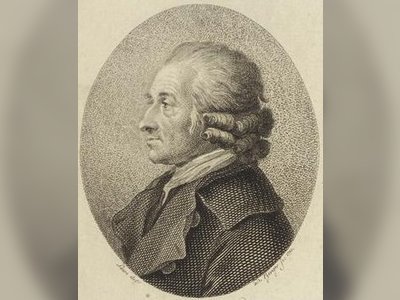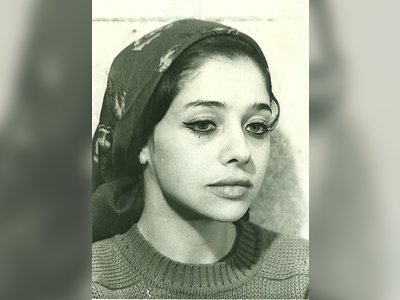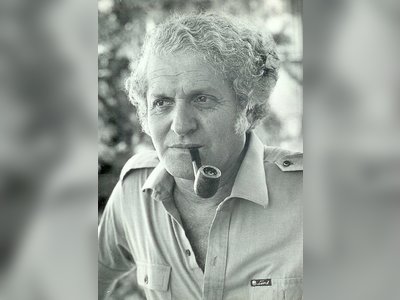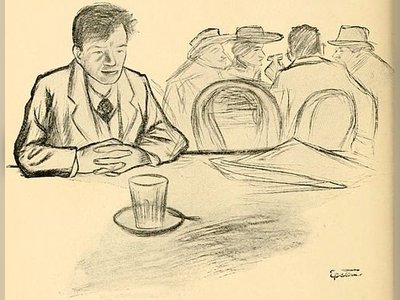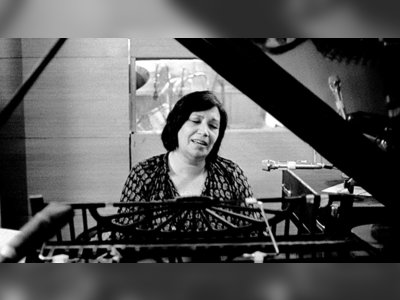Sammy Shalom Steritt - A Literary and Cultural Figure in Israel
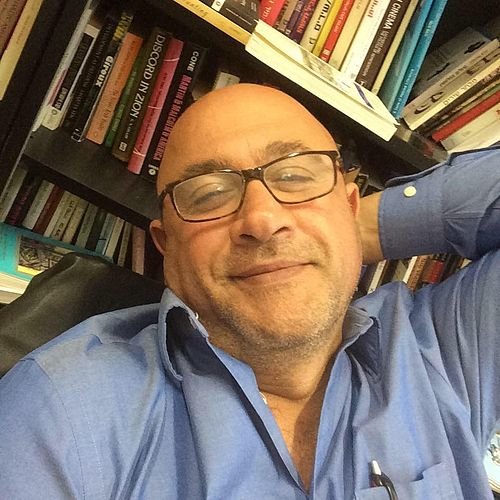
Sammy Shalom Steritt is a multifaceted figure in Israel who has made significant contributions to literature, academia, and social activism. His poetry has touched upon issues of identity, ethnicity, and culture, while his academic work and social involvement have aimed at promoting equality and diversity in Israeli society. Steritt's fearless critique of established norms and his commitment to fostering change have made him a prominent voice in contemporary Israeli culture and politics.
Sammy Shalom Steritt, born on May 15, 1960, is a multifaceted figure in Israel, known for his contributions to literature, academia, culture, cinema, Middle Eastern studies, and social research.
With a diverse background, Steritt has authored six volumes of poetry and has held prominent positions in the field of arts and education. This documentary-style article aims to shed light on the life, accomplishments, and influence of Sammy Shalom Steritt.
Early Life and Background:
Sammy Shalom Steritt was born in Kasar A-Suq, now known as Ashdod, in southeastern Morocco. His family migrated to Israel in 1963, where he was raised and educated. His mother, Penina Steritt-Adri, and his father, the renowned writer Nahorai Meir Steritt, played pivotal roles in shaping his upbringing. Sammy Steritt's formative years were spent in Ashdod, and he attended the Nahalat Yehuda Agricultural High School in the 1970s. As of 2021, he continues to reside in Ashdod.
Academic Endeavors:
Steritt's academic journey began at the Hebrew University of Jerusalem, where he pursued a bachelor's degree in Hebrew literature, later earning master's and doctoral degrees in political science. He also pursued international studies at Columbia University in New York, specializing in Middle Eastern studies.
His doctoral thesis focused on the political history of Mizrahi Jews in Israel, and this research culminated in the publication of "The Mizrahi Struggle in Israel," which was well-received and published by Ofakim Publishing House.
Throughout his academic career, Steritt held various positions, including a professorship in Hebrew language and culture at Queens College in New York. He also served as a visiting lecturer at the University of California, Berkeley, and was a research fellow at the Center for Religious Studies at the University of California, Los Angeles. Currently, Steritt serves as a lecturer and the head of the School of Voice and Screen Arts at Sapir College in the Negev region, near Ashdod.
Poetry and Literary Contributions:
Sammy Shalom Steritt's poetry has garnered widespread recognition and has been published in numerous literary journals and newspapers, such as "Newspaper 77," "Ephraim," "Moznayim," "Shdemot," "HaKivun Mizrahi," and more. His work has also been translated into multiple languages, including English, Arabic, German, French, and Danish, and featured in various international anthologies.
As of 2021, Steritt has published six poetry books. His debut poetry collection, "Piticha" (Opening), was published in 1988 by Aked Publishing and won the first-place prize for poetry in the "Harei HaRishon" literature competition at the Hebrew University of Jerusalem that same year. His second book, "Pericha Sham Yafe" (A Flower There Is Beautiful), was published by Nur in 1995.
"Shirim BeAshdodit" (Poems in Ashdodian) was released by Andalus in 2003 and achieved considerable popularity. The book later served as the basis for a successful musical performance directed by actor and director Shimon Mimran, in collaboration with composer Jonathan Kan'an and musician Adam Madar. In 2008, Steritt published "Yehudim" (Jews) with Nahar Publishing, followed by "Zman Maroko" (Moroccan Time) in 2015 by Bimat Kadim Publishing. In 2019, he released another poetry collection, "Lo Rak VeLo Kashe" (Not Soft and Not Hard), also by Bimat Kadim.
One of Steritt's notable poems reads:
"When Pitichya was born in Dar El-Beda,Her mother named her Piticha,
For her life to be filled with joy."
Steritt's poetry has had a profound impact on other Mizrahi poets, such as Erez Biton, and several of his poems have been set to music and recorded by musicians like Shlomo Gronich and Barry Sacharof.
His literary work has been the subject of numerous academic studies, including doctoral dissertations at Ben-Gurion University.
Social Activism:
During the 1990s, Sammy Steritt played a central role in various social and Mizrahi-oriented movements, including "Kadima – For Equal Intellectual Education in Israel" and "The Mizrahi Democratic Rainbow Coalition." He served as an educator at the Rogozin School in Tel Aviv and later as the founding director of the "Kadima Tel Aviv" high school in the Hatikva neighborhood. The initiative faced significant challenges, and Steritt described the reasons for its failure as follows:
"Kadima - The Association for Equal Intellectual Education in Israel" was established in 1993 by educators, academics, Mizrahi activists, and parents in the communities of Hatikva, Katamon, Ofakim, and Kiryat Malakhi. The Zionist Ashkenazi establishment and its Mizrahi partners felt threatened by the emergence of intellectually balanced, equal educational institutions that both reflected the cultural diversity and contributed to the new Mizrahi narrative alongside students and their parents.
This was the most organized Mizrahi consciousness revolution to date and was therefore perceived as a threat. Unlike the era of the "Black Panthers," the persecution of "Kadima" activists in Tel Aviv was carried out by local Mizrahi Members of Knesset, members of the city council, such as Deputy Mayor Eitan Suleimani, and the head of the Hatikva neighborhood committee, Shlomo Maslawi.
They harassed, incited, and turned the population against the school, impacting registration processes and municipal support. They also pressured the mayor, Roni Milo - who had initiated the school - to close it, but he consistently rejected their demands.
In 2003, together with Eli Hamo, Steritt produced the documentary film "The Black Panthers Speak."
In 2016, Steritt co-founded the "AshdodShira" Festival with Moti Malka, which has since become the largest poetry festival in Israel. Steritt serves as its artistic director.
Beliefs and Ideology:
Steritt is known for his thought-provoking articles published in Israel and internationally, addressing Israeli society, ethnic and class relations, culture, education, and the Israeli-Palestinian conflict. He has often criticized the intellectual elite in Israel, including prominent writers and newspapers like Haaretz, accusing them of harboring prejudices against Mizrahim, shaping the country's history, and promoting Orientalism.
Concurrently, Steritt has been a vocal critic of religious and traditionalist establishments while advocating for secularism. He believes that Mizrahim and the Left should work together to create a new vision, a Jewish-Arab vision that "does not require ejecting anyone from their homes, neither Jews nor Arabs."
Awards and Recognition:
In 2014, Sammy Steritt received an acknowledgment from the "Lev BaMizrah Coalition" as part of the Lev BaMizrah Festival.
In 1988, his poetry collection secured the first-place prize in the "Harei HaRishon" competition for literature at the Hebrew University. The collection, titled "Piticha" (Opening), was published by Aked Publishing.
- סמי שלום שטריתhe.wikipedia.org
